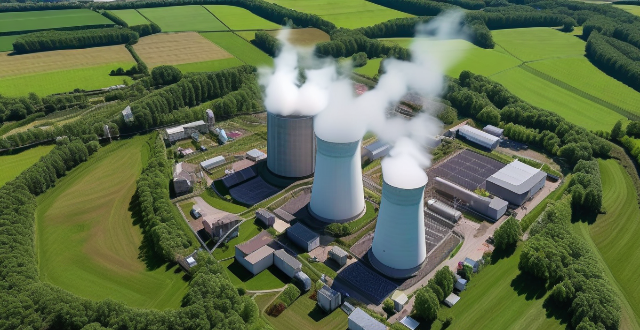Renewable energy sources like solar, wind, hydro, and geothermal power are crucial in reducing greenhouse gas emissions as they produce significantly fewer carbon emissions than fossil fuels. These abundant and sustainable sources can be replenished naturally, creating a more sustainable future. Investing in renewable energy also brings economic benefits by decreasing technology costs and stimulating local economies. Renewable energy improves air quality by not producing harmful pollutants associated with fossil fuel combustion. It plays a vital role in mitigating the effects of climate change by reducing greenhouse gas emissions. By transitioning to a low-carbon economy powered by renewable energy, we can avoid the worst impacts of climate change.

The Role of Renewable Energy in Reducing Greenhouse Gas Emissions
Renewable energy plays a crucial role in reducing greenhouse gas emissions. This is because renewable energy sources, such as solar, wind, hydro, and geothermal power, do not produce the harmful pollutants that contribute to climate change. Here are some key points to consider:
1. Low Carbon Emissions
- Renewable energy sources generate significantly fewer carbon emissions than fossil fuels. For example, wind turbines and solar panels produce no direct emissions during operation.
- By using renewable energy instead of fossil fuels for electricity generation, we can reduce our carbon footprint and slow down the rate of global warming.
2. Abundant and Sustainable
- Renewable energy sources are abundant and sustainable. Unlike fossil fuels, which are finite resources, renewable energy sources can be replenished naturally.
- By investing in renewable energy infrastructure, we can create a more sustainable future where our energy needs are met without depleting natural resources or contributing to climate change.
3. Economic Benefits
- Investing in renewable energy can also bring economic benefits. The cost of renewable energy technologies has been decreasing over the years, making them more competitive with fossil fuels.
- In addition, renewable energy projects often create jobs and stimulate local economies. This can lead to long-term economic growth and stability.
4. Improved Air Quality
- Renewable energy sources do not produce harmful air pollutants like sulfur dioxide, nitrogen oxides, and particulate matter that are associated with fossil fuel combustion.
- By reducing our reliance on fossil fuels and shifting towards renewable energy sources, we can improve air quality and reduce the health impacts of air pollution.
5. Climate Change Mitigation
- Climate change is one of the most pressing environmental issues facing our planet today. Renewable energy plays a vital role in mitigating its effects by reducing greenhouse gas emissions.
- By transitioning to a low-carbon economy powered by renewable energy, we can avoid the worst impacts of climate change and protect vulnerable communities around the world.
In conclusion, renewable energy is essential for reducing greenhouse gas emissions and combating climate change. By investing in renewable energy infrastructure and promoting its use, we can create a more sustainable future for ourselves and future generations.